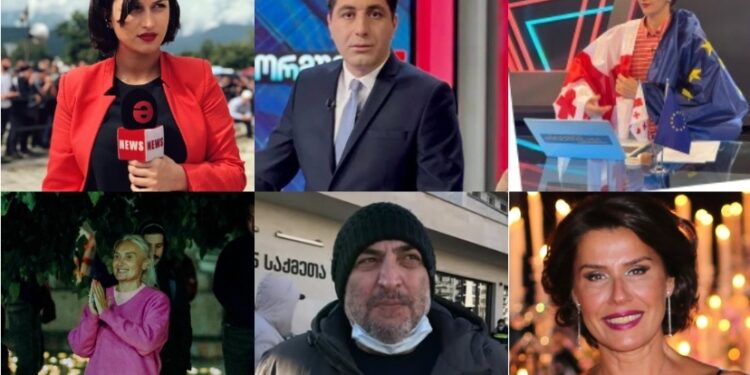The Council of Europe has expressed deep concern after six prominent Georgian journalists were summoned to court over alleged “insults” directed at government officials via Facebook. The case, widely condemned by media watchdogs and civil society groups, is being seen as another blow to press freedom in the country.
The journalists – Nanuka Zhorzholiani, Vakho Sanaia, Vika Bukia, Eka Mishveladze, Misha Mshvildadze, and politician-editor Tamar Chergoleishvili – are accused of violating public order and “insulting the authorities” in their social media posts. The charges, filed following complaints by the ruling Georgian Dream party, could result in fines of up to 4,000 GEL (about $1,450) or up to 45 days in administrative detention.
The Council of Europe’s 2025 annual press freedom report noted that Georgia had recorded one of the sharpest declines in media freedom across the continent in 2024. The report documented a threefold increase in alerts, referencing growing political interference, legal harassment, and violence against journalists.
“The targeting of journalists for Facebook posts is a troubling escalation,” said a spokesperson for the Media Advocacy Coalition. “It signals a shift toward criminalizing free expression on social media.”
This incident is not isolated. In recent months, dozens of Georgian journalists have been fined or taken to court for covering protests, allegedly “blocking roads,” or simply expressing dissent. In March alone, 17 journalists were fined a total of 85,000 GEL.
New legislative amendments adopted earlier this year have sparked outrage. A law branding certain social media activity as “hooliganism” allows courts to impose heavy fines or up to 60 days in jail. Rights groups fear the law is designed to suppress government criticism online.
“These actions undermine Georgia’s democratic institutions and violate international norms on freedom of speech,” said the Georgian Charter of Journalistic Ethics in a joint statement with the Media Freedom Rapid Response network.
The Council of Europe and the European Union have both called on Georgian authorities to respect press freedom and withdraw politically motivated cases against journalists. The developments come at a sensitive time, as Georgia seeks closer alignment with the EU and NATO.
In Brussels, MEPs have raised the alarm over what they describe as “a dangerous slide toward authoritarianism” in Georgia. The growing crackdown on critical voices – including both media professionals and civil society activists – is expected to be a key topic at the next European Parliament session on EU-Georgia relations.
The six journalists are expected to appear in court later this month. Observers warn that the outcome could set a dangerous precedent for how free expression is treated in Georgia – especially in the digital space.
As international pressure mounts, the Georgian government is facing a stark choice: continue its restrictive path or reverse course to protect media pluralism and democratic accountability.














